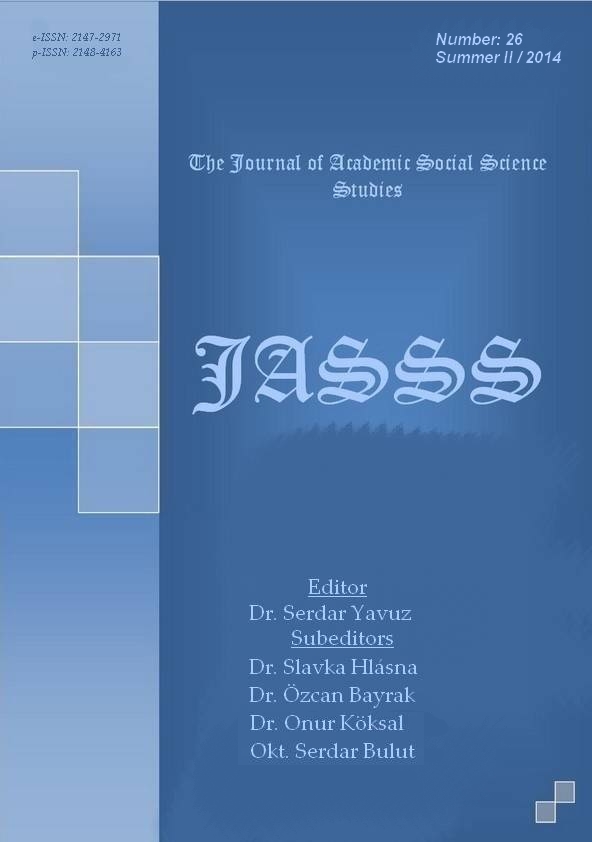ULUSLARARASI İLİŞKİLERDE HEGEMONYA OLGUSU VE ABD HEGEMONYASININ SİYASAL VE KÜLTÜREL KAYNAĞI: “AMERİKAN İSTİSNACILIĞI” YA DA “AÇIK/KAÇINILMAZ YAZGI”
Author :
Abstract
“Eleştirel Kuram”da kullanılan ve Robert Cox’un Antonio Gramsci’den alarak Uluslararası İlişkiler disiplinine uyarladığı hegemonya kavramı, uluslararası sistemde devletlerin zorlama sonucu değil, bir devletin etrafında onun etkisini kabul ederek kendi rızalarıyla oluşturdukları ilişki sistemini anlatmak için kullanılmaktadır. Uluslararası ilişkiler tarihine bakıldığında, bazı devletler ya da devlet toplulukları belli süreçler sonucunda güç ve kapasitelerini devletlerarası ilişkilerin işleyiş tarzını belirleyebilecek ölçüde geliştirebilmişlerdir. Bu devletler sistem içindeki diğer aktörlerin kendilerine karşı oluşturabilecekleri potansiyel koalisyonların toplamda yaratabileceğine yakın bir güce ve kapasiteye sahip olarak, hegemon konumlarını kendilerinin yerini alacak olan yeni bir büyük gücün yükselişine dek sürdürmüşlerdir. II. Dünya Savaşı’ndan sonra İngiltere’nin hegemonyasının sona ermesiyle birlikte onun halefi olarak uluslararası sistemin hegemon gücü haline gelen ABD, uluslararası sistemin kuralları ve normlarını kendi motivasyon ve isteklerine göre değiştirme gücüne ve yeteneğine sahip olma konumunu elde etmiştir. Bu bağlamda, ABD’nin günümüz uluslararası sistemindeki hegemonyasının kaynakları arasında sahip olduğu siyasal ve kültürel unsurlar temel önem arz etmektedir. Bu çalışmada, uluslararası ilişkilerde hegemonya olgusu ele alınarak, siyasal ve kültürel bağlamda ABD hegemonyasına kaynaklı eden “Açık/Kaçınılmaz Yazgı” (Manifest Destiny), diğer bir isimlendirmeyle “Amerikan İstisnacılığı” (American Exceptionalism) ele alınıp değerlendirilecektir.
Keywords
Abstract
The concept of hegemony, which is used in “Critical Theory” and which was borrowed from Antonio Gramsci and adapted to the discipline of International Relations by Robert Cox, refers to the system of relations that states form voluntarily –not by force- around a certain state by confirming its influence. The history of international relations shows that some states or groups of states managed to in-crease their power and capabilities to an extent that they could shape the way interstate relations operate. They managed to acquire nearly as much power and capability as other actors in the system could generate by forming coalitions against them, and they maintained their hegemonic positions until the rise of a new great power. With the demise of British hegemony after the World War II, the USA became the new hegemonic power in the international system acquiring the power and capability to shape the international rules and norms according to her own motivations and demands. In this respect, the political and cultural elements among the sources of the current US hegemony in the international system are of essential importance. In this study, by discussing the phenomenon of hegemony in international relations, the concept of “Manifest Destiny”, or in other words “American Exceptionalism”, which is the political and cultural source of the US he-gemony, will be addressed.





